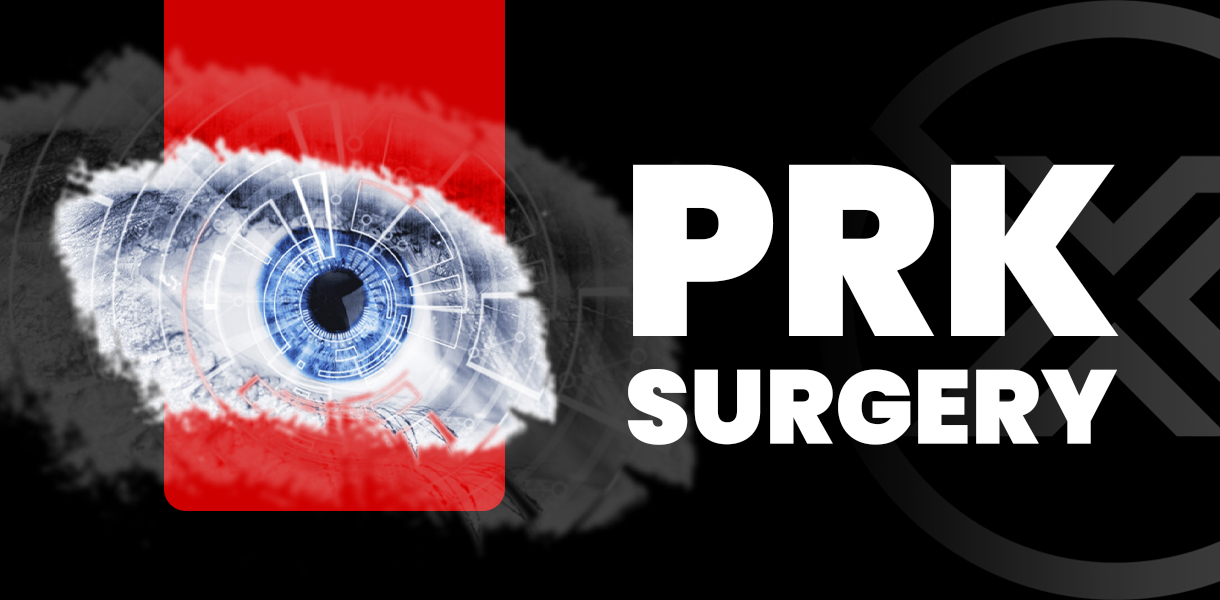
PRK surgery, or Photorefractive Keratectomy, is a type of laser eye surgery that corrects vision problems such as nearsightedness, farsightedness, and astigmatism. It is an effective and safe procedure that has helped millions of people around the world achieve clear vision without the need for glasses or contact lenses. In this comprehensive guide, we will explore everything you need to know about PRK surgery, including how it differs from LASIK, its benefits, the procedure itself, recovery and aftercare, potential risks and complications, how it compares to other vision correction options, finding the right PRK surgeon, and frequently asked questions. By the end of this guide, you will have a thorough understanding of PRK surgery and be able to make an informed decision about whether it is the right choice for you.
While PRK surgery and LASIK are both laser eye surgeries designed to correct vision problems, there are some key differences between the two procedures. The main difference lies in how the cornea is reshaped to correct vision. In LASIK surgery, a thin flap is created on the surface of the cornea, which is then lifted to access the underlying tissue. The cornea is reshaped using a laser, and the flap is then repositioned. In PRK surgery, on the other hand, the outer layer of the cornea called the epithelium, is completely removed. This allows the laser to reshape the cornea directly. The epithelium regenerates naturally in the days following the surgery. Another difference is the recovery time. PRK surgery has a longer recovery period compared to LASIK, as the removed epithelium takes time to heal. However, the long-term visual outcomes of both surgeries are similar.
PRK surgery offers several benefits for individuals with vision problems. One of the main advantages is that it can correct a wide range of vision issues, including nearsightedness, farsightedness, and astigmatism. This makes it a suitable option for many people who are not eligible for LASIK surgery due to thin corneas or other factors. Additionally, PRK surgery is a safe and effective procedure with a high success rate. It has been performed for over three decades and has helped millions of people achieve a clear vision. PRK surgery also eliminates the need for glasses or contact lenses, allowing individuals to enjoy activities such as swimming or playing sports without the hassle of visual aids. Furthermore, PRK surgery is a permanent solution to vision problems, providing long-lasting results.
The PRK surgery procedure is a relatively simple process that typically takes less than 30 minutes to complete. Before the surgery, you will undergo a comprehensive eye examination to determine your eligibility for the procedure. On the day of the surgery, numbing eye drops will be applied to ensure your comfort throughout the procedure. The surgeon will then gently remove the outer layer of the cornea, the epithelium, using a special brush or surgical instrument. Once the epithelium is removed, the laser will be used to reshape the cornea, correcting your vision. The laser used in PRK surgery is an excimer laser, which precisely removes tiny amounts of tissue from the cornea to reshape it. After the cornea has been reshaped, a protective contact lens will be placed on the eye to aid in the healing process. This contact lens will be removed by your doctor a few days after the surgery.
After PRK surgery, it is important to follow the recovery and aftercare instructions provided by your surgeon to ensure optimal healing and results. The first few days after the surgery, you may experience some discomfort, blurred vision, and light sensitivity. Your surgeon will prescribe eye drops to alleviate any discomfort and promote healing. It is crucial to use these eye drops as directed and avoid rubbing your eyes to prevent infection or complications. It is also recommended to take a few days off work or school to rest and allow your eyes to heal. During the initial healing period, your vision may fluctuate, and it may take a few weeks or even months for your vision to stabilize. It is important to attend all follow-up appointments with your surgeon to monitor your progress and address any concerns. You should also avoid activities that could potentially harm your eyes, such as swimming or using eye makeup, until your surgeon gives you the green light.
Like any surgical procedure, PRK surgery carries some risks and potential complications. However, these are rare and can be minimized by choosing an experienced and qualified surgeon. Some possible risks include infection, corneal haze, under-correction or over-correction of vision, and dry eyes. Infection can be prevented by following the post-operative instructions provided by your surgeon and using the prescribed eye drops as directed. Corneal haze is a temporary condition that may cause blurred vision, but it usually resolves on its own within a few months. Under-correction or over-correction of vision can sometimes occur, and in such cases, a follow-up procedure may be necessary to fine-tune the results. Dry eyes are a common side effect of PRK surgery, but they typically improve over time with the use of artificial tears and other lubricating eye drops. It is important to discuss the potential risks and complications with your surgeon before undergoing PRK surgery to ensure that you have realistic expectations and are well-informed.
PRK surgery is just one of several vision correction options available today. Other popular options include LASIK surgery, implantable contact lenses, and refractive lens exchange. Each option has its own advantages and considerations, and the best choice for you will depend on various factors, such as the nature of your vision problem, your age, and your lifestyle. LASIK surgery is similar to PRK surgery but offers a faster recovery time. Implantable contact lenses are an alternative for individuals who are not suitable candidates for laser eye surgery. Refractive lens exchange involves replacing the natural lens of the eye with an artificial lens, making it a suitable option for individuals with presbyopia or high levels of nearsightedness or farsightedness. It is important to consult with an experienced eye surgeon who can assess your individual needs and recommend the most suitable vision correction option for you.
Choosing the right surgeon for your PRK surgery is crucial to ensure a successful outcome. When searching for a PRK surgeon, it is important to consider their qualifications, experience, and reputation. Look for a surgeon who is board-certified and has extensive experience performing PRK surgery. You can also ask for recommendations from friends or family members who have undergone similar procedures. It is a good idea to schedule consultations with multiple surgeons to discuss your options and ask any questions you may have. During these consultations, pay attention to the surgeon’s communication style, willingness to answer your questions, and their overall approach to patient care. It is important to feel comfortable and confident in your choice of surgeon before proceeding with PRK surgery.
PRK surgery is a safe and effective procedure for correcting vision problems such as nearsightedness, farsightedness, and astigmatism. It offers several benefits, including a wide range of vision correction, permanent results, and freedom from glasses or contact lenses. However, it is important to consult with an experienced eye surgeon to determine if PRK surgery is the right choice for you. They will assess your individual needs, evaluate your eligibility for the procedure, and recommend the most suitable vision correction option. By understanding the procedure, recovery process, and potential risks, and comparing it to other options, you can make an informed decision about whether PRK surgery is the right solution to achieve clear and improved vision. Take the first step towards a better vision by consulting with a qualified PRK surgeon today.
CTA: Schedule a consultation with an experienced PRK surgeon to discuss your vision correction options and determine if PRK surgery is right for you. Don’t let vision problems hold you back from living life to the fullest. Take the first step towards a clearer vision today.
09:00 AM to 12:00 PM
Support Center 24/7
Orta Mh. Kanuni Sk. No: 5 (Kartal, İstanbul) W663+42
Copyright 2024 Clinixenter. All rights reserved.
 Online
Aylin Yazici
Online
Aylin Yazici
Use this feature to chat with our agent.
WhatsApp us